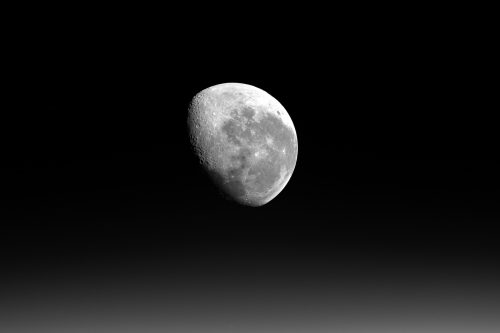I’m sitting with eight new friends in a sushi restaurant in downtown Fargo. I’m in town to speak at a conference. The restaurant’s decor—drab walls, dim light, and wholesale furniture—is not remarkable. The staff here is adequate, not exactly friendly, not exactly not.
The food is exquisite, though. I’m working my way through a salmon roll while my new friends from the conference make light conversation, joking and laughing about this and that. Not one for small talk, I’m mostly listening. And masticating.
A lifelong novice with chopsticks, I force another piece of sushi into my mouth and then feel a tap on my shoulder. A petite blond girl is standing behind me, a look of trepidation on her pretty features. She appears either excited or nervous or perhaps both at the same time. Maybe a decade younger than me, she’s too stylish to be employed by this establishment: dark denim, a white jacket, an asymmetrical haircut.
I attempt to say “hello,” but with a awkward mouth full of rice I sound like a drowning man. My friend Colin, seated to my right, picks up my slack: “Sorry but he’s always this inarticulate around women.”
I finally choke down the half-chewed salmon and squeeze out a tentative greeting: “Hi.”
“Hi,” she responds with a bashful smile. “I’m sorry to bother you, but are you, umm … are you the guy on the cover of this book?” She’s clutching a copy of Minimalism: Live a Meaningful Life, holding it proudly with both hands, presenting it like a doctor would a newborn to its mother. A few people at the table snicker.
“Uhh … yes. That’s me,” I say, inspecting the cover as if verifying its authenticity.
“Wow! This is so cool. Would you sign it for me? And can I get a picture with you. Oh, this is so awesome. I can’t believe it. I was just sitting over there reading your book and now you’re here. In this restaurant. In Fargo,” she says.
I look over at Colin suspiciously, assuming he’s the one responsible for this practical joke. Sure, I get recognized from time to time, but come on: In a hole-in-the-wall sushi joint in North Dakota? In front of a bunch of impressive people who are clearly impressed by what’s transpiring? By a pretty girl who just so happens to be reading my book at the same time I’m in town for a conference?
“Really?” I say, staring at Colin with incredulity.
“What?” he asks, an innocent look on his face, almost batting his eyes.
“You set this up.”
“Set what up?”
“This. You asked this girl to walk over here with my book.”
“No I didn’t.”
“Come on, man. No one’s really going to believe this. The timing is too perfect to be plausible. You’re making us look silly.”
By now the rest of the table is listening, and the girl is still standing behind me, book in hand.
“I have no idea what you’re talking about,” Colin insists. He’s a terrible liar, so, by his shocked expression, I can see he’s telling the truth. He didn’t set this up. This girl was not planted. None of this is rigged.
Hmmm. This must be what it feels like to be … ugh … “famous.”
Oh dear.
I take the napkin off my lap and stand. “Hi, I’m Joshua.”
“I know,” she laughs and extends a hand. “I’m Katie.”
“I’m a hugger, Katie,” I say and open both arms.
She gives me a big hug.
“Thanks for making me look much more impressive than I actually am, Katie.”
She displays a white-toothed grin. “I’m only about halfway through the book, but it has already put things into a new perspective for me. It’s like I’m asking myself all these new questions—questions I never even thought about asking before. You know, like about my material possessions, and about what I’m passionate about, and questions about my relationships. It’s like this whole new way of looking at things.”
That’s when it clicked for me: It’s not me who’s famous. I am not what’s interesting to people. Rather, it’s the message that’s compelling, and I’m just the messenger. And I’m fine with that.
In fact, I imagine it’d be miserable to be truly famous—that is, to be famous for the sake of being famous. Several examples come to mind: Paris Hilton, the Kardashians, the entire cast of Jersey Shore. Those people are well known only because they are famous, not for what they stand for, not for adding value to people’s lives. (N.B. I’m not saying they’re bad people; it’s just that I wouldn’t want to be in their situations.)
However, whenever I’m recognized in public, it’s usually accompanied by “Aren’t you one of The Minimalists?” or “Didn’t you write that Minimalism book?” or “Thank you for your blog.” Truth be told, I never thought I’d be a public figure of any sort. Not even close. But now that I am eminent to a (very) small degree, I’m happy that what I’m known for is the right thing. Each time I’m recognized, I’m reminded that our message is spreading—a message I sincerely believe in.
We all have an identity, but what we often don’t realize is that our identities are shaped by our daily actions. My daily actions of the last several years have made me a messenger for simple living—a designation I wear with pride.
Standing next to Katie as we pose for a photo together, I notice I’m a foot taller than her, which seems apropos since she isn’t taking a picture with me anyway; she wants a photo next to minimalism—a movement taller than us all.
“The Right Kind of Fame” was originally a passage in Everything That Remains, but its chapter was one of many that didn’t make the final draft, so I decided to share it here instead. For more essays from The Minimalists, subscribe for free via email.

